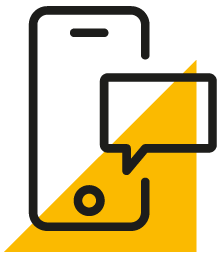COVID-19: Tax Measures for Irish Businesses

Updated October 22, 2020
Employment Wage Subsidy Scheme
The existing Temporary Wage Subsidy Scheme (“TWSS”) which ended on 31 August 2020 has been replaced by the Employment Wage Subsidy Scheme (“EWSS”) which is due to run until 31 March 2021.
o qualify for the scheme an employer must be able to demonstrate that in the period 1 July 2020 to 31 December 2020 the business has/will experience a reduction in turnover/orders of 30% or more as compared to the corresponding period in 2019 and that the reduction is as a result of the disruption caused by Covid-19. If an employer avails of the EWSS they are obliged to carry out a review of the business’ continuing eligibility on the last day of each month. If a business no longer meets the qualifying criteria then they must de-register from the scheme with effect from the 1st day of the following month. The EWSS will be administered by the Revenue Commissioners on a self-assessment basis.
Due to Level 5 restrictions, effective from October 21st, Government has introduced a revised rate for the EWSS which is outlined as follows:
The revised scheme will run to end January 2021.
For a full summary of changes to the EWSS, please click here
Temporary Wage Subsidy Scheme (to August 31, 2020)
On June 5th, Minister for Finance Paschal Donohoe announced the extension of the Temporary Wage Subsidy Scheme to August 31st, 2020.
Businesses re-opening in line with Phase 2 and 3 of the return to work, who were not previously registered for the scheme, can now apply to join the scheme, provided they meet the relevant eligibility criteria.
Overview of the scheme
The wages subsidy will be paid by the Revenue Commissioners to employers who avail of the scheme. The scheme is available to employers across all sectors other than the Public Sector and Non-Commercial Semi-State Sector.
The scheme will provide a subsidy to employers for each eligible employee to enable the employer to retain staff in employment.
Employer eligibility and key steps:
-
To qualify for the scheme an employer must be experiencing significant negative economic disruption due to the Covid-19 crisis;
-
To this end the employer should be able to demonstrate that the employer’s turnover is likely to decrease by 25% or more for the period 1 April to 31 August 2020 and that the business is unable to meet normal wages or normal business expenses;
-
In relation to the likely reduction in turnover of 25% or more this should be supported by financial budgets taking into account the significant negative economic disruption on the employer due to the Covid-19 crisis;
-
Application for the scheme is based on self-assessment principles; a qualifying employer declares that it is significantly impacted by the crisis and registers for the scheme via ROS.
-
The registration process requires the employer to make a declaration to the Revenue Commissioners that as a result of the economic disruption caused by the Covid 19 crisis the employer cannot pay normal wages and outgoings fully but nonetheless wants to retain its employees on the payroll.
-
The declaration by the employer is not a declaration of insolvency.
Key features of the Temporary Wage Subsidy Scheme – Phase 2 (applies from 4 May 2020 to 31 August 2020)
Employees with net pay less than €586 per week (€38,000 p.a.)
Phase 1 of the scheme has resulted in many lower paid employees receiving less under the scheme as compared with what they would receive if they were laid off. To address this the Minister has announced the following changes:
-
for those employees with previous average net pay up to €412 per week the subsidy will be increased from 70% to 85% of their previous net weekly pay
-
for those employees with previous average net pay between €412 and €500 per week the subsidy will be up to €350 per week
In addition, where an employer wishes to pay a greater level of top-up in excess of the outstanding 15% of previous pay - (in respect of employees with net pay less than €412 per week) in order to bring the employee’s pay to €350 per week then tapering would not be applied to the subsidy.
There are no changes in respect of those whose previous average net pay was between €500 and €586 per week, who will continue to receive a subsidy of up to 70% of previous net income, up to a maximum of €410 per week.
Employees with net pay in excess of €586 per week (€38,000 p.a.)
For employees with previous net pay in excess of €586 per week, a tiered approach will apply. The maximum subsidy payable for these remains €350 per week. The tiered approach takes into account both the amount paid by the employer and the level of reduction in pay borne by that employee as follows:
| Gross Amount Paid By Employer | Subsidy |
|---|---|
| Up to 60% of employee’s previous average net weekly pay | Up to €350 per week |
| Between 60% and 80% of employee’s previous average net weekly pay | Up to €205 per week |
| Over 80% of employee’s previous average net weekly pay | No subsidy payable |
Tapering of the subsidy will apply to all cases where the gross pay paid by the employer and the subsidy exceed the previous average net weekly pay. This is calculated by subtracting the amount paid by the employer from the previous average net weekly pay. This is to ensure that no employee would be better off under the scheme.
The Minister has also determined that the wage subsidy is now available to support employees where the average net pre-COVID-19 salary was greater than €76,000, and their gross post-Covid salary has fallen below €76,000. The tiered arrangement applicable to gross incomes in excess of €38,000 will apply in such circumstances. This provision applies with effect from April 15, 2020.
The Revenue Commissioners and payroll software providers are currently working on updating systems to deal with the temporary wage subsidy scheme. Relevant systems are expected to be operational by 4 May (further updates/guidance can be expected from Revenue before then).
In the meantime employers may receive subsidy amounts of €410 per employee that exceed the actual subsidy amounts paid to employees. All excess subsidy amounts are to be repaid to the Revenue Commissioners in due course.
For more information on the operation of the scheme and its previous phases, please visit Revenue.ie

If you require further information on the supports available to businesses impacted by COVID-19 or if you would like assistance in accessing any of the measures outlined, please do not hesitate to get in contact with our advisory team. We'd be happy to assist you.




